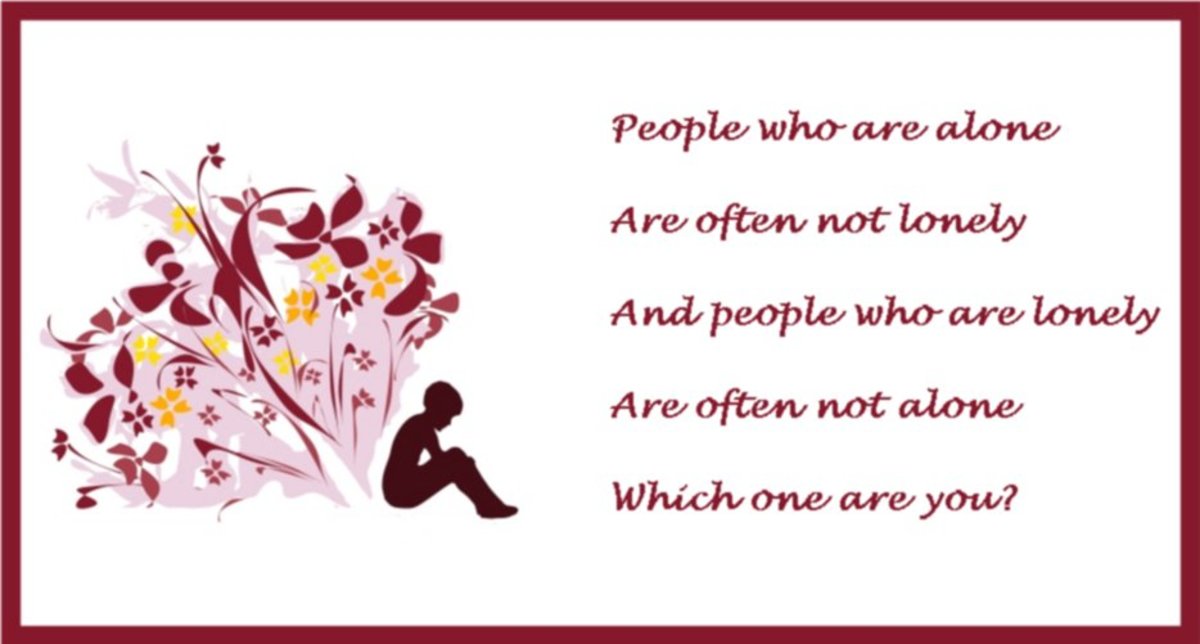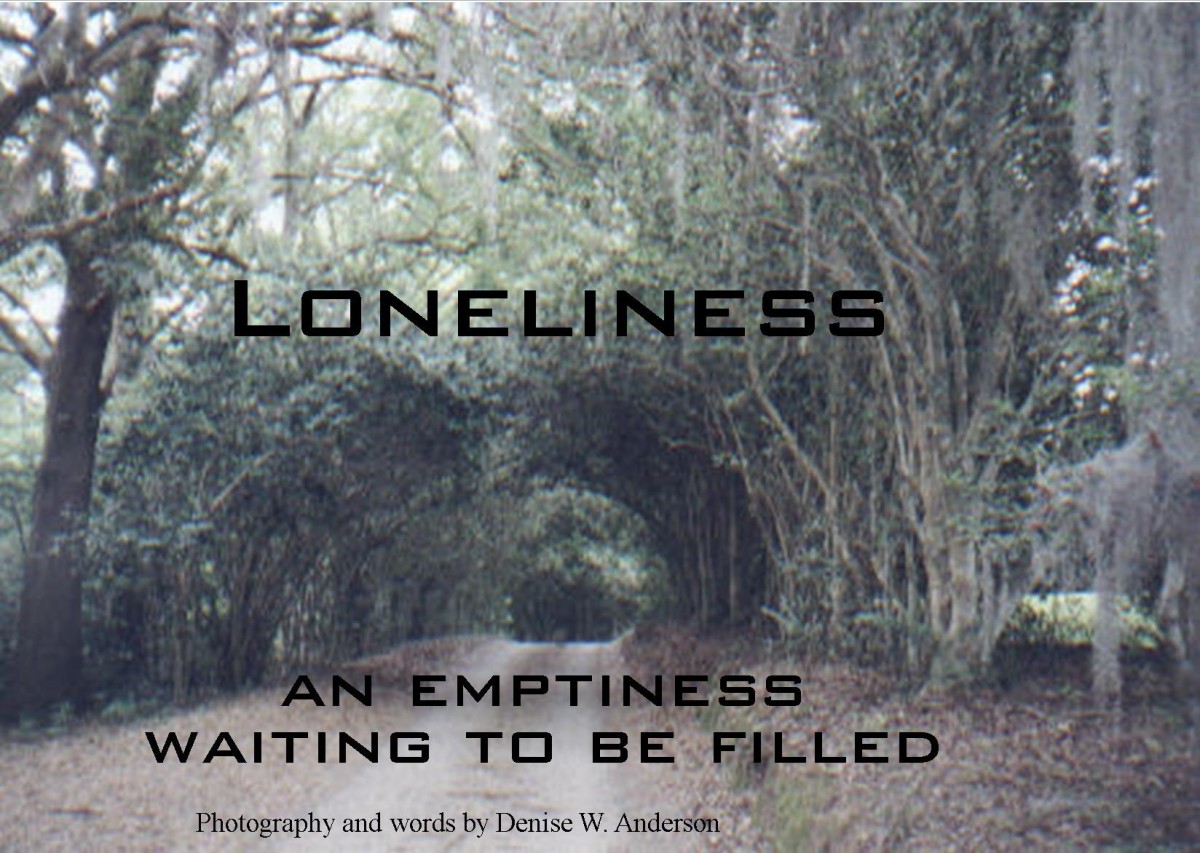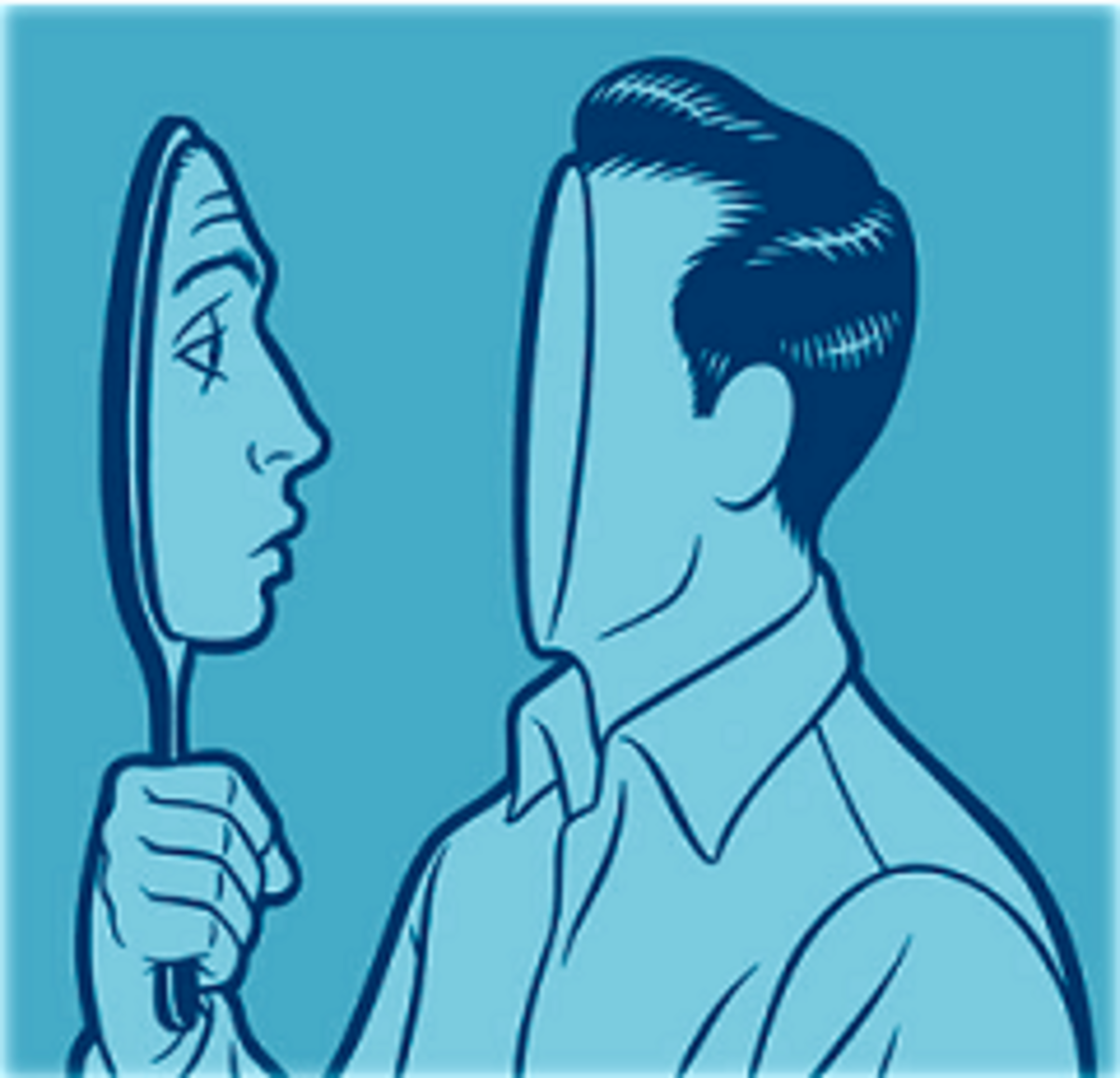Loneliness: Is It Good or Bad to Be Alone?

Three characteristics define loneliness:
1. it is the result of poor social relationships;
2. it is a subjective experience, as one can be alone without being lonely or feeling alone when in a group;
3. and it is unpleasant and may generate anxiety.
35% of the population between 25 and 40 years old live alone. Loneliness is also considered to be one of the possible factors that cause disorders such as depression, suicide and serious medical problems, including cardiovascular diseases. Also, according to recent studies, the immune system is affected by protracted solitude. This is not always acknowledged, because those who suffer effects of loneliness do not always admit that it is to blame, perhaps because they do not want to be recognized as "alone" or "lonely" since, to many, it is indicative of a social failing, and they are ashamed of their feelings or their inadequacy to overcome isolation.
There are two types of loneliness: emotional loneliness or absence of an intense relationship with another person that produces satisfaction and safety; and social loneliness, which means non-membership of a group that helps the individual to share interests and concerns. It seems, moreover, that loneliness is related to the individual's ability to express their feelings and opinions.
The likelihood that we stand alone increases when we do not succeed in relating to people. In general, people with problems of neurosis are convinced that they are kind and worthy of being appreciated and spurn potential friends in order to protect themselves from possible rejection.
The most common definition of loneliness is a state arising from lack of company, and people tend to link it with states of sadness, indifference and negativity. It is not the same as solitude which is usually purposely sought, and is not necessarily a state resulting from social inadequacy.
How to identify loneliness
Individuals suffering from loneliness usually lack the following:
- someone who loves them and depends on them
- someone to treat
- the opportunity to express their inner feelings to another person
- a group of friends that they feel part of
- someone who needs their love
- someone who they want physically
- people who they share values and interests with
- friends to share leisure activities
- relationships at work
- a sense of trust in close friends
- regular physical intimacy.
Moreover, there is chronic loneliness in people who have not been able to establish satisfactory relations for a period of several years and at least through two stages of life, such as adolescence and young adulthood, or young adulthood and middle age.
There may also be a lonely time, inducing a brief and occasional mood of loneliness, after work or during weekends.
The absence of a loved one
When someone disappears from our lives, someone we loved or who occupied a leading position in our daily lives, we are invaded by a particular sense of loneliness, a sense of emptiness, something that makes us despair. We have to bear the painful sensation of being abandoned and the absence of an irreplaceable person.
We are social beings who need others to define us, not only to fulfill our needs for affection and personal development, but also to strengthen and validate our self-esteem, as it is generated every day by the interaction with people around us.
The loss is irreplaceable, but it should not be irreparable. That gap will be there, but if we allow ourselves to feel the sadness then we tend to eventually overcome it, trusting ourselves that we can establish new relationships to fill the gap. We have to try not to let that lack of a person become a general lack of relationships. This enforced solitude is painful, but it can become positive if we interpret it as an opportunity to learn to live with the pain without allowing it to block our progress. We must internalize and control pain, know it as an inherent part of life, learn not to fear it and not to avoid it, because that is a weakness or an incapacity.
Social loneliness
Whoever barely speaks with their family, coworkers and neighbors feels a common loneliness in this world. They are unable to raise even a minimum of trust in those around them because they fear they may reject them. They have locked themselves in a small cell and justify their lifestyle saying "they do not understand me", "people just want to hurt me", "the only thing that matters to them is to get something from you", "every time you trust someone, you take a stab". If solitude is desired, there is nothing to object to, but the situation involves some risks: human beings are sociable by nature and they need a network of friends with whom to share interests, concerns and desires. It is difficult to build goals and social habits and to make and keep friends, but it's worth trying your best in the long run.
That unwelcome solitude may transform itself into anxiety. Although some do get used to living alone, they only appear to be strong and self-reliant. Such appearances are meant to hide the insecurity and fear inside, and the fact that they simply do not respect themselves.
There may also be unwanted solitude among the elderly, or those of an unconventional sexual orientation, or who suffer from certain illnesses, physical or psychological disabilities or cosmetic defects.
A transient state
Loneliness is a situation we should see as temporary, and which is not necessarily traumatic. Sometimes it is desirable to choose solitude, because there is a time to communicate with ourselves and a time to communicate with others. Sometimes we need to establish contact with the deepest part of ourselves. We "talk" to our fears because we cannot ignore them but we must not remain obstructed by them. To sum up, we must balance the time in which we express ourselves and serve others, and times dedicated to thinking about our own issues alone.
Overcoming unwanted loneliness: Practical steps
1) Diagnose the kind of loneliness we are suffering from and its circumstances.
2) Get to know ourselves well. Put aside the fear of self-searching and face the need to know who we are: our hopes and ambitions, limitations and fears, who we want to be, how people see us, how we look, and so on...
3) Overcome shyness. Take the initiative to build new relationships. Determine who are the people we care about and develop a strategy to contact them.
4) There is nothing to lose. Fear of rejection prevents us from making new friends or lovers. The goal is important, so let's not fuss over it.
5) No one is without someone to identify with. The world is sometimes cruel, vulgar and materialistic, but surely there are others willing to meet someone like us.
6) Do not acknowledge defeat. Loneliness hurts us and we feel better when we have someone to talk to and who we want to get intimate with.







